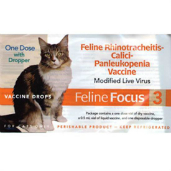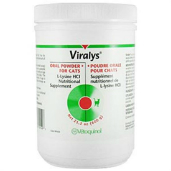The feline herpes virus type 1 (FHV-1) is a relatively common upper respiratory viral infection that affects cats (and only cats--it cannot be passed to humans, dogs, or other species). The condition goes by a few other names, including feline influenza, feline viral rhinopneumonitis (FVR), and feline rhinotracheitis virus.
FHV-1 is highly contagious and easily spreads among multiple cats in the same household, primarily via shared litter boxes and water or food bowls or during mutual grooming. It can also be passed from the mother during pregnancy, which makes catteries and animal shelters high-risk locations. All cats are susceptible regardless of age, breed, and other factors, although kittens, cats with compromised immune systems, and flat-face breeds are more likely to develop serious illness as a result of infection.
Symptoms of the Feline Herpes Virus Type 1
"Unfortunately, FHV-1 cannot be cured and infections generally do not go away."
FHV-1 is an upper respiratory tract infection, so many of the most common symptoms involve this area. Congestion, coughing, sneezing fits, excess salivation, and a nasal discharge may be seen. Discharge may also seep from the eye and conjunctivitis (pink eye) or eye ulcers or lesions can develop. Other typical signs and symptoms include squinting, a high or fluctuating fever, diminished appetite, lethargy, and depression. If you suspect your cat has FHV-1, schedule an appointment with your veterinarian as soon as possible.

Diagnosing Type 1 Herpes Virus in Cats
This affliction is often difficult to diagnose. Diagnosis begins with a medical history, a physical examination, and consideration of the presenting symptoms. Also, there are several different laboratory tests that can assist in making a diagnosis. Immunofluorescence is sometimes used, for example. This test involves illumination of viruses or their antibodies in tissue or a culture that is visible under a microscope. A qualitative PCR (polymerase chain reaction) test, performed on a sample taken from the cat’s throat, looks for evidence of the virus in the animal’s DNA. This test can be misleading, though, as FHV-1 can be present in cats that are carriers but that do not develop symptoms.

Treating and Managing Feline Herpes Virus Type 1
Cats can be vaccinated against FHV-1, and this is always the best course of action to prevent infections. Unfortunately, FHV-1 cannot be cured and infections generally do not go away. Most cats fully recover, however, but some have occasional flare-ups periodically throughout their life. Stress is the most significant trigger of reactivation, so take steps to keep your cat calm and to minimize environmental causes.
Ulcers, lesions, conjunctivitis, and secondary infections can be treated with antibiotics, antiviral medications, and other appropriate therapies as recommended by your veterinarian. The same is true of congestion and other minor symptoms. Running a humidifier, a healthy diet, plenty of fresh water, frequently and gently cleaning your cat’s eyes, and a calm environment all help control symptoms, too.
Additionally, increased intake of the amino acid L-lysine, as is provided in supplements such as Viralys, helps manage symptoms affecting the respiratory tract, eyes, and coat.
References
http://www.aspca.org/pet-care/cat-care/cat-care-herpes.aspx
http://petsmd.com/Health/Cats/Feline-Herpesvirus-Infection
The above is provided for information purposes only and should not be used for the diagnosis or treatment of any condition.
This information does not cover all possible variables, conditions, reactions, or risks relating to any topic, medication, or product and should not
be considered complete. Certain products or medications may have risks and you should always consult your local veterinarian concerning the treatment of
your pet. Any trademarks are the property of their respective owners.